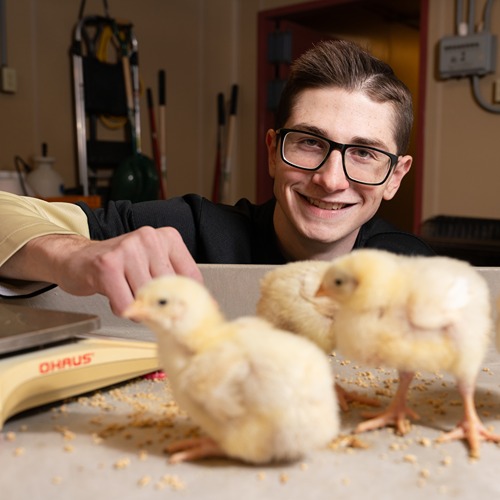Animal Sciences
The Department of Animal Sciences is part of the College of Agriculture, and we desire to be the "place to go" for the citizens of Indiana and beyond for knowledge in animal sciences. We are comprised of ~700 undergraduate students, ~60 graduate students, ~30 professors and ~20 staff members. We are very excited to be in our new facilities: the Hobart and Russell Creighton Hall of Animal Sciences and the Land O'Lakes, Inc. Center for Experiential Learning with the adjacent Purina Pavilion, which houses our whole department under one roof for the first time ever. We invite you to come visit! Explore our site and read our latest newsletter to learn more about who we are and what we do.
CONTACT US
Animal Sciences
anscinfo@purdue.edu
270 S Russell Street
West Lafayette, IN 47907
765-494-4806
For vet questions, please contact the College of Veterinary Medicine's Vet Teaching Hospital. Call 765-494-1107 for small animals, 765-494-8548 for large animals or 765-496-7911 for animal emergencies.
Explore the possibilities in Purdue Animal Sciences
Animal Sciences Spotlights
Explore the latest stories featuring Purdue Animal Sciences students, alumni, faculty and staff.

awards & Recognition
Discover recent awards and honors earned by our Animal Sciences faculty, staff and students.







